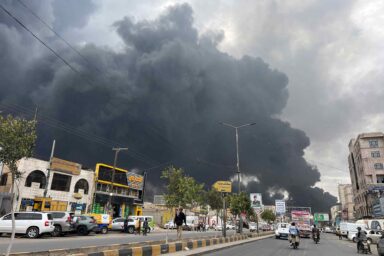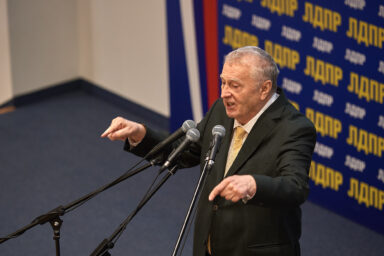When she saw a video of “Ukrainian soldiers” doctoring a mannequin to look like a body, she immediately recognized it: a Russian TV show she’d worked on.
Responding to mounting atrocities in Ukraine, Russian media continues to claim that the rising death toll is all part of an elaborate Ukrainian hoax.
On April 7, the Russian-run media outlet Russia-24 released a video entitled “Ukrainian fake films.” The video clip allegedly reveals Ukrainian soldiers positioning a battered mannequin as a prop for faking civilian deaths.
Yet, while Russian media tried to use the video as “evidence” that Ukrainians are simulating atrocities and attributing them to Russian troops, the public soon learned that the video was actually lifted from a Russian television show — footage shot weeks before Russia claimed Ukraine staged the event.
The first assistant director of that television show, Nadezhda Kolobaeva, told WhoWhatWhy that the shoot was in the Russian town of Vsevolozhsk and an extra on the show shot the video clip and then shared it on the Russian social media platform VKontakte (VK). The clip was then appropriated and reused by a Russian-backed media channel. “On that video, I recognized my friends and colleagues working on the television set,” Kolobaeva said.
The “Ukrainian soldier” in the Russian propaganda video is actually a stuntman from Kolobaeva’s television show, and the mannequin was used as a prop in the same show.
“Here is the video of the most famous dummy of the Russian Federation from our site,” she wrote in the Facebook post, where she shared a clip of the mannequin being dropped from a boom-lift.
She also provided a video of the stuntman preparing the mannequin for the sequence.
The footage from the television show is clearly dated March 20, which is more than two weeks before Russian media claim it was filmed in Ukraine.
Russian Media Anticipates More ‘Fake’ Videos From Ukraine
Other Kremlin-backed news agencies are spreading similar lies. Recently, the Russian media agency TASS reported that Ukraine faked the train station bombing at Kramatorsk.
On April 8, thousands of people were waiting for trains to take them away from the war zone when Russian rockets struck the station and killed more than 50 people, including children.
That same day, Ukrainian President Volodymyr Zelenskyy condemned Russia for targeting civilians. “Having neither forces nor bravery to face us on the battlefield, they are cynically destroying the civilian population,” Zelenskyy wrote on Facebook.
Yet TASS falsely reported that Ukraine was responsible for the attack. “All the claims by representatives of the Kyiv nationalist regime that Russia allegedly carried out a ‘missile attack’ on April 8 against the railway terminal in Kramatorsk are a provocation and completely have nothing to do with reality,” Russia’s Defense Ministry stated.
The same TASS dispatch asserted the damage to the train station was caused by a missile that “is used only by the Ukrainian army.”
Experts have repeatedly dismissed such Russian claims, and world leaders are calling this attack another example of Russian war crimes in Ukraine, which include mass graves of executed citizens that were uncovered in Bucha. Russia has claimed the mass graves were staged, too.
More recently, on April 10, a TASS dispatch charged that Ukraine is planning future “fake” events, specifically more videos: “The Ukrainian side is plotting to shoot a fake video about searches of places of mass burials of civilians allegedly killed by Russian troops,” and “a team of Ukrainian forensic experts and police officers will be involved in the provocation to make it look more trustworthy.”
In this article, Mikhail Mizintsev, chief of Russia’s National Defense Management Center, said that Ukraine, with support from several Western countries, “continues to plan barbarous and ruthless actions with mass killings of civilians in the Lugansk People’s Republic to later accuse the Russian armed forces and LPR troops.”
‘I Must Be Brave’
As most Russian news outlets toe the Kremlin’s line on the war, people like Kolobaeva — who continues in her job as an assistant director for Russian television — are taking a risk by debunking government propaganda.
Kolobaeva said she is angry at what her government is doing. “I must be brave like Alexei Navalny,” she said of the Russian opposition leader and activist, who faces a long prison sentence for challenging Russian President Vladimir Putin.
“I’m safe now,” she added, “but when I go to sleep, I’m waiting for [a] SWAT [team].”
Sean Ogden contributed to research for this story.



